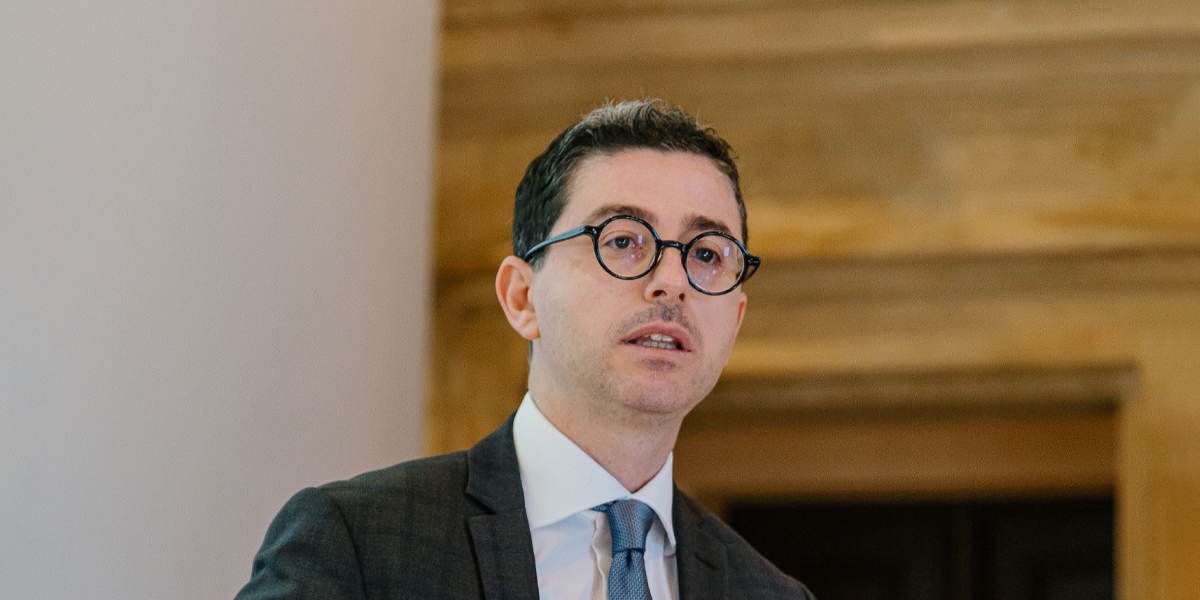
Navigating the future: global business in the next decade
15 May 2024Interview with Marcello Russo, Ph.D., Director of the Global MBA and Associate Director of the Corporate Ferrari Global Executive MBA at Bologna Business School and Professor at the University of Bologna.
Full Professor of Organizational Behavior and Human Resource Management at the University of Bologna (where he is also a member of the Research Committee), Marcello Russo is a member of the BBS Faculty and teaches in the graduate and Custom Programs organized by the School.
On the one hand, new trends. On the other, ongoing disruptions. Which of the key trends and disruptions of recent years will have a profound impact on global business in the next decade?
For sure, the issues of sustainability and everything related to new technologies, I’m thinking primarily of artificial intelligence, will be the key points around which much of the business of the near future will revolve.
Then, there is the big cross-cutting topic of learning how to relate to a world determined by permanent uncertainty: work is becoming flexible, and businesses need to adopt adaptive mindsets to be able to deal with changing scenarios.
A Global MBA must offers just that: a flexible, always up-to-date approach. Professors must have, in addition to the top-level knowledge that BBS International Faculty is a guarantee of, adaptive skills, open-mindedness and the ability to understand complexity and transmit it to students in the form of tools to be used in the business world.
How does the Global MBA program incorporate future-focused content to best prepare students for the challenges and opportunities of an ever-changing business world?
Through a Faculty of indisputable quality: active in research, with professors who are often themselves entrepreneurs in the market sectors they teach at BBS. The balance between academic teaching and the active role of managers and executives in the classes has always been a hallmark of Bologna Business School: we need to translate theoretical concepts into business practices. The practical approach of teaching helps students bridge the gap between theory and practice.
How does the Global MBA address the impact of emerging technologies: such as robotics and artificial intelligence, on global business strategies?
The School offers specific Masters on these topics. But in all courses Faculty are involved to introduce real-world, thus current, case studies: the implications of technology, how it is affecting all business sectors is a daily topic in BBS’s Global MBA classes.
Returning then to the value of our Faculty, one example for all: Alon Wolf is BBS’s professors and one of the greatest experts in the application of new technologies, his the invention of snake robots today used both in medical applications and in the search for victims of natural disasters. A well known name even outside the University, like so many here in Bologna Business School.
Innovation is a key factor for success. How does the Global MBA promote leadership that can adapt to companies that prioritize ongoing innovation? What is the importance of soft skills, in addition to classic, structured competence?
Leadership can mean many things. The idea of developing adaptive leadership is quite new and is part of BBS’s approach to all business-related topics. Talking about leadership first and foremost means confrontation: the Global MBA includes clinics on leadership and cross-cultural management, but it is in the classroom, in the always active discussions among MBA participants, that the virtuous circle develops and the behaviours of individuals make a difference to others as well. In this way, the attitudes that are not only most positive but also most helpful to the team are highlighted, developing in the classroom best practices that can be brought back to the company.
Soft skills matter just as much as core management training, which in now taken for granted in the best business schools: the real difference is in how students learn about themselves and their own behaviours as they enter a mentoring program that becomes a way of experiencing work and relationships.
We like to say that those who enter BBS never leave, because they remain alumni for life, maintain and cultivate human and professional relationships even after a long time, and perpetuate that attitude of continuous improvement that is one of the pillars on which Bologna Business School was founded.
